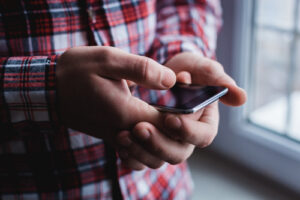 It was announced recently that after a successful trial run, all police officers in Lancashire would soon be equipped with 4G enabled smart phones. That means around 2,000 officers will now have Samsung Galaxy Note 4’s on them at all times and is just one part of a £10.1m IT update from the force.
It was announced recently that after a successful trial run, all police officers in Lancashire would soon be equipped with 4G enabled smart phones. That means around 2,000 officers will now have Samsung Galaxy Note 4’s on them at all times and is just one part of a £10.1m IT update from the force.
This massive outlay from the police obviously indicates just how useful they believe smartphones will be as part of a policeman’s arsenal now, and in the future.
Inspector Dave Hannon who took part in a pilot scheme for the project said “What this does is free us up from police stations and allow us to access systems while we are out and about”. It begs the question, if in the future all police will be using these readily available devices, should security professionals follow suit?
Private security is a different game to policing. There are different restrictions and challenges to the jobs but that doesn’t mean that each profession shouldn’t take notice of innovations in the different fields. There’s inevitably also a lot of crossover in the types of work that they do too.
If we compare a police officer and a security guard they often have very similar responsibilities.
Evidence collection is mainly down to the police, but there will also be instances when security professionals have to collect their own. Say a security guard who sees somebody committing criminal damage to the property. Using a smartphone they can take video footage of the incident taking place and after contacting authorities and dealing with the perpetrator can take photos of the damage and share them easily with others. This ease of investigation and evidence storing is extremely useful and could especially be so for confrontations.
Police already use body mounted cameras to film protests and arrests so that they have evidence of events. If for instance doormen used smart phones this might lead to greater accountability in the profession, but also as a deterrent to would-be troublemakers.
Surveillance is somewhere new technology comes in to its own. While CCTV is an invaluable tool to security professionals it does mean there are many restrictions to how and when footage can be viewed. CCTV and recorded surveillance footage are great for retrospectively catching people out, but as a first response tool, it does have limitations. If you’re sitting in a large building’s CCTV room and you see some sort of security breach by the time you get out to see what the issue is, it may be too late.
With the introduction of new interfaced apps with video recording systems, smartphones can now be used as mobile recording and viewing screens meaning professionals can continue with waling patrols of the building while still keeping an eye on cameras elsewhere.
These apps can also give employers and installers’ insight by allowing them remote access to camera feeds. Instead of installing complicated and expensive security systems to control camera movement and recording it might end up being cheaper to configure equipment with smartphones and adapt them to use as a remote for example.
Anthony Neary, an expert at security product provider The Safe Shop commented that “Smartphones can be so useful for remote viewing of surveillance cameras. I think in future they’ll become more integral to security strategies and make it much easier for security professionals to do their job, you can do everything on the go!”
Smartphones are integral to most of our lives now and they help us with everything from finding recipes and facts to watching and making videos. With new apps and technology making them more and more useful the security industry should think seriously about making a call, and equipping the workforce.



